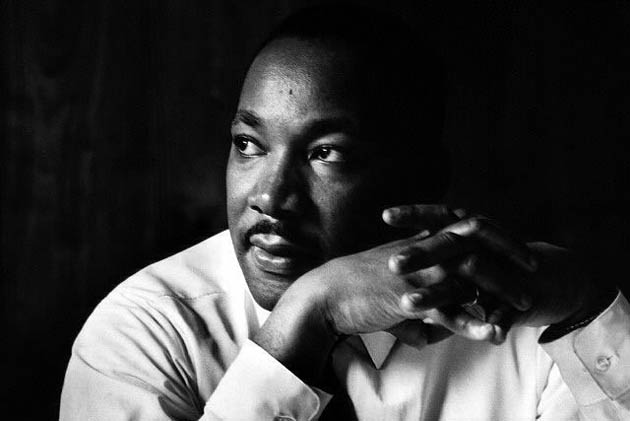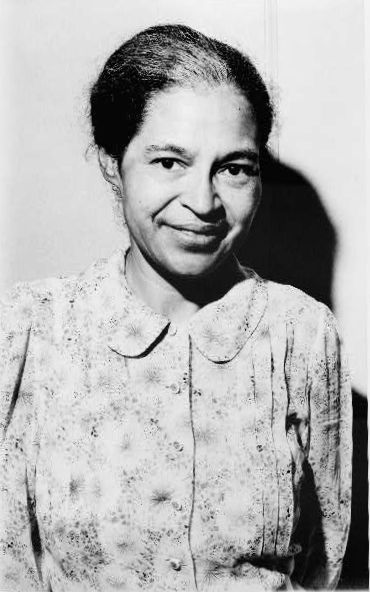In related news, a site is chosen for the National Museum of African American History and Culture (at 14th and Constitution NW, near the Washington Monument.) As I argued before, some museum along such lines on our nation’s Mall is long overdue.
Tag: Civil Rights
Bound for Glory.

Nothing if not textbook and by-the-numbers (Coach Haskell would be proud), Disney’s Glory Road — the story of the 1966 NCAA Champion Texas Western Miners, the first basketball team in tournament history to feature five black starters — still makes for a decent genre matinee. It’s not a movie that’ll light the world on fire by any means, but it hits its beats decently, and benefits from amiable performances from Josh Lucas and Emily Deschanel right on down the bench. I wish the movie had stayed more with the historical game plan it marked out in the opening credits — and that the basketball scenes were more engrossing — but, all in all, Glory Road is a journeyman sports pic.
A synopsis here is probably overkill, suffice to say that a well-meaning disciplinarian coach (Josh Lucas) rides into El Paso, circa 1965, to try to mold a championship basketball team out of a triracial group of college athletes. Do these youngsters overcome their cultural differences, learn there’s a method to Coach’s madness, and become a Team? Do they play well enough to get to the Big Dance? Well, I’ll leave that for you to discover. The main — ok, the only — thing that differentiates Glory Road from its many predecessors is its period flavor. These players don’t just have to worry about the usual assortment of college problems: They’re also caught up in the middle of the civil rights revolution — and the white backlash — across the South, and have to contend with brutal acts of racism off the court as well as the usual opposing teams. George Will recently questioned whether this team was as history-making as it’s made out to be here. Well, ok, but, in a way, that’s beside the point. By bringing race and the civil rights struggle to the fore here, Glory Road acts as a corrective to the main flaw in what’s otherwise a better basketball film, Hoosiers. As Spike Lee points out in Best Seat in the House, it’s hard to watch that film, particularly its final game, and not feel at times that its an uncomfortably white basketball flick.
Speaking of Spike Lee’s book, it also kinda ruined some of Glory Road for me. Therein, Lee (pre-He Got Game) spends a chapter calling out ridiculous basketball scenes in movies — watching unathletic actors dunk on 6-foot rims, etc. And, while the rims look the right height in Glory Road, I have to admit, none of the basketball scenes are all that engaging. They’re cut too close, there’s barely a sense of plays developing, and very few shots seem to leave the actors’ hands to go into the basket. (For that matter, you don’t really get a sense of what various players’ strengths or weaknesses are here, other than that Bobby Joe Hill (Derek Luke) has a nice handle and Nevil Shed (Al Shearer) has a tendency to disappear in the paint. What’s more, Coach’s advice throughout basically can be summed up as “You can do it!” — Not a lot of play-calling going on.) Still, for what it is — an uplifting vignette of sports history — Glory Road is solid enough. Formulaic, sure, but no harm, no foul.
Dubya Justice / The Way of Payne.
“The voting section is always subject to political pressure and tension. But I never thought it would come to this…I was there in the Reagan years, and this is worse.” With the help of former career officials who’ve resigned in disgust, the Post delves deeper into the partisan corruption of the Justice Department’s Civil Rights Division on Dubya’s watch. “The Bush administration has…initiated relatively few cases under Section 2, the main anti-discrimination provision of the Voting Rights Act, filing seven lawsuits over the past five years — including the department’s first reverse-discrimination complaint on behalf of white voters…By comparison, department records show, 14 Section 2 lawsuits were filed during the last two years of Bill Clinton’s presidency alone.“
And, in related news, Salon‘s Will Evans uncovers a crooked Dubya-appointed federal judge, James Payne of the 10th Court of Appeals. Apparently Judge Payne “issued more than 100 orders in at least 18 cases that involved corporations in which he owned stock,” which, obviously, is illegal. “‘There’s no wriggle room here,’ says professor Stephen Gillers, a scholar of legal ethics at the New York University School of Law. ‘It’s not just an ethics rule, it’s a congressional statute — a law.’” Little wonder the administration is running scared from pics of Casino Jack — they’ve already got the stink of Abramoff-style cronyism and corruption all over them.
MLK 2K6.

“Returning violence for violence multiplies violence, adding deeper darkness to a night already devoid of stars. Darkness cannot drive out darkness: only light can do that. Hate cannot drive out hate: only love can do that.“
– Dr. Martin Luther King (1929-1968)
Discriminatory Intent.
“At the same time, prosecutions for the kinds of racial and gender discrimination crimes traditionally handled by the division have declined 40 percent over the past five years, according to department statistics. Dozens of lawyers find themselves handling appeals of deportation orders and other immigration matters instead of civil rights cases.” The Post traces the demise and demoralization of the Justice Department’s Civil Rights Division under Attorneys General Ashcroft and Gonzales.
Last stop.



“Memories of our lives, of our works and our deeds will continue in others.“
R.I.P Rosa Parks 1913-2005.”
Harriet the Spy?
“She may turn out to be the greatest thing since Antonin Scalia, but when will we know that?” Two days after the Harriet Miers pick, and despite news reports accentuating her strong evangelicism, conservatives are still openly perturbed by the choice (George Will is particularly livid.) As for how she stands on the issues, we still know very little, other than her mixed record on gay rights and probable pro-life stance. (Well, presumably, she’s also pro-lottery.) Nevertheless, it sounds like she’s probably already got Harry Reid’s vote.
New Deal, Raw Deal.
“It was during the administrations of Franklin Roosevelt and Harry Truman that such great progressive policies as Social Security, protective labor laws and the GI Bill were adopted. But with them came something else that was quite destructive for the nation: what I have called ‘affirmative action for whites.’ During Jim Crow’s last hurrah in the 1930s and 1940s, when southern members of Congress controlled the gateways to legislation, policy decisions dealing with welfare, work and war either excluded the vast majority of African Americans or treated them differently from others.” With Katrina as a newspeg, Columbia’s own Ira Katznelson previews his new book on New Deal racial exclusion in the Washington Post.
Killen Time.
On the other side of the Padilla coin, a terrorist who has been tried and convicted has been walking free…until now. 80-year-old Klansman Edgar Ray Killen is rejailed after it was discovered he had been lying about being wheelchair-bound. “‘It’s interesting,’ said Susan Glisson, the director of the William Winter Institute for Racial Reconciliation at the University of Mississippi. ‘Forty-one years ago the police department was involved in a conspiracy to murder these three young men. The fact that members of that same police department are now involved in putting Mr. Killen back in jail is indicative of how far this community has come.'”
Fallen Chief.
Breaking News: Segregationist, federalist, kingmaker, lousy historian, fashion maven, and Chief Justice of the Supreme Court William Rehnquist has died. Can’t say I’m looking forward to the Dubya gang getting to pick a new Chief Justice. Nope, not at all. Update: Dahlia Lithwick weighs in, and the nomination calculus begins anew. Update 2: It’s Roberts for Chief.
